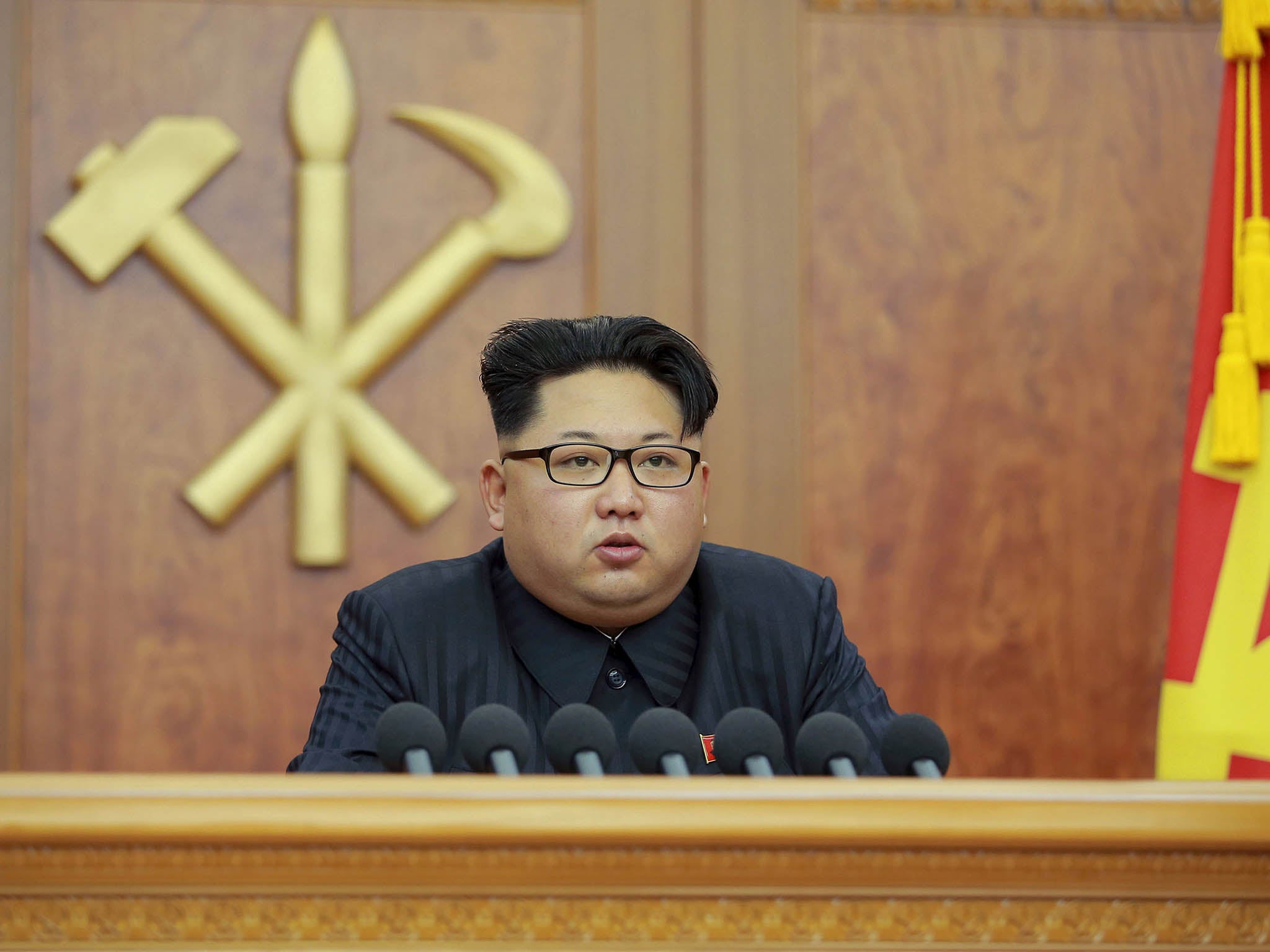Why the collapse of the North Korean regime may pose a bigger threat to the world than any hydrogen bomb test
Kim Jong-un’s regime could be more 'rational and predictable' than the alternative, expert claims

The possibility of the North Korean regime collapsing poses a bigger threat to global security than the country’s burgeoning nuclear capabilities, an expert has claimed.
Speaking to The Independent, the head of Chatham House’s Asia Programme, Dr John Nilsson-Wright, said that despite Pyongyang’s ceaseless sabre-rattling and the possible testing of a hydrogen bomb early this morning, Kim Jong-un’s regime actually remains largely rational and predictable.
The real threat to global security would emerge if Kim suddenly died or lost his grip on power Dr Nilsson-Wright added, explaining that such a scenario could create a massive regional power vacuum and is likely to lead to the country’s vast nuclear stockpile vanishing into the black market.
“There are other ways in which nuclear material could be a threat, especially with the possibility of it proliferating on the international market,” he said. “The very possibility of regime collapse opens the door to nuclear and ballistic material getting into the wrong hands,” he added.”
“This is as much of an issue of whether the North would willingly, with malice aforethought, contemplate using nuclear weapons against other nations,” he went on to say.
Explaining what could happen if the North Korean regime collapsed, Dr Nilsson-Wright said: “We can imagine quite a number of scenarios. A struggle on the part of the military to assert authority and competing generals trying to present themselves as power brokers to the outside world.”
“There isn’t really any tradition in North Korea of non-Kim rule, so anybody that doesn’t have that power base, that Kim DNA, would probably find it very difficult to manage the country. I imagine if the regime were to collapse you’d see swift efforts by the Chinese to intervene,” he added.
“How the United States and South Korea would respond to the Chinese intervention but we hope that behind the scenes there is active collaboration between Seoul and Beijing to talk about possible scenarios but we don’t have concrete evidence to back up that notion,” he went on to say.
Dr Nilsson-Wright did suggest the West was right to be worried about North Korea, however, saying: “Any evidence that the North is further developing its nuclear capabilities is a source of great alarm.”
“Given that North Korea is an authoritarian regime, has considerable stockpiles of ever-expanding nuclear, chemical and biological weapons, vast conventional forces and is led by a man who seems to enjoy provoking [the West] and relishes his authoritarian style of leadership and is happy to engage in this type of brinkmanship, then I think we ought to be very concerned.
But he explained that just because North Korea is openly hostile to the West, it doesn’t necessarily mean its demise is something we should look forward to.
“I do think it is fundamentally a regime that is inherently rational, not unpredictable and, as we see in this incident and in previous cases, is happy to test the resolve of the international community,”
”In some ways it’s better the devil we know, with the fact [Kim’s] in control and has a strongly centralised authority possibly providing some degree of reassurance,” Dr Nilsson-Wright said.
Subscribe to Independent Premium to bookmark this article
Want to bookmark your favourite articles and stories to read or reference later? Start your Independent Premium subscription today.

Join our commenting forum
Join thought-provoking conversations, follow other Independent readers and see their replies